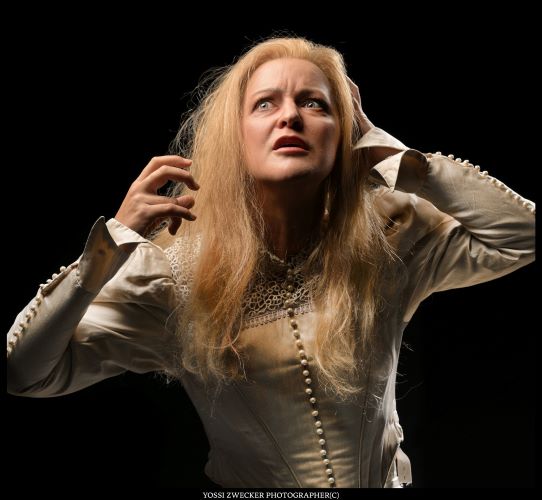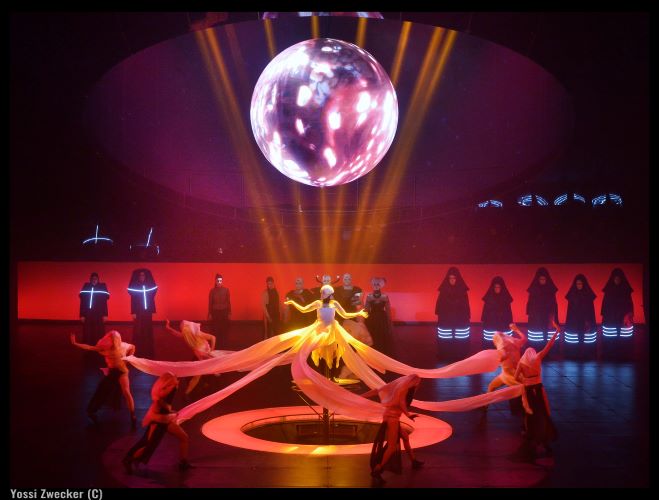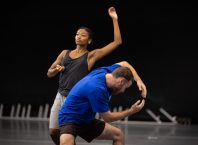The Israeli Opera has announced its exciting new season, celebrating its 40th anniversary with 7 productions that include a new, original Israeli opera, international collaborations, and the finest artists, both Israeli and international.

The season will open in November with Henry Purcell’s Dido and Aeneas, with a libretto by Nahum Tate, directed by Stefano Poda, and conducted by Amelung Gerd. Poda is well known as a director who conceives an entire visual world for his operas, designing set, costumes, lighting design and movement. His previous productions performed at the Israeli Opera – Antonin Dvořák’s Rusalka in 2024, Jacques Offenbach’s Les Contes d’Hoffmann in 2022, and Charles Gounod’s Faust in 2017 are memorable for their creative and striking images. It is particularly fitting to open the season with this opera, as Dido and Aeneas was the first opera performed at the Israeli Opera.
In Virgil’s Aeneid, Dido is described as the Queen of Carthage (modern day Tunisia), although other sources place her elsewhere in the Middle East. According to Virgil, Dido fell in love with the Trojan hero Aeneas, one of the few who survived the fall of Troy. He returned her love, but having been commanded by the Gods to flee with his men to found a new Troy in Italy, he ultimately abandons Dido. Tate’s libretto features a sorceress and a demon, and Purcell’s music pierces the heart with Dido’s sorrow. The opera will be sung in English. With Stefano Poda at the helm, it should be a thrilling opening to this year’s opera season.
Iolanta, the last opera composed by Pyotr Tchaikovsky, will be performed for the first time ever at the Israeli Opera, in a new, original production, directed by Shirit Lee Weiss and conducted by Dan Ettinger. It is literally an opera about emerging from darkness into the light, as the libretto, written by the composer’s brother, Modest Tchaikovsky, centers on Iolanta, blind from birth, who is raised in seclusion and ignorance of her situation and place in life by her father King René. She is unaware that she is blind and does not know that she is a princess. Her father has arranged a marriage for her with Duke Robert, keeping the secret of her blindness from him as well. A Moorish physician, Ibn-Hakia, tells the King that he can cure Iolanta’s blindness, but only if she understands that she is blind. The King refuses, but this is opera, and love – which comes from an unexpected direction – will let in the light. The opera will be performed in January and will be sung in Russian.

The Dybbuk – a cornerstone of Jewish lore and literature – will make its world premiere in February, in a new opera composed by Yosef Bardanashvili, and directed by Ido Ricklin, who adapted the play by S. An-sky. Ricklin, who has directed many operas at the Israeli Opera, including Alcina (2022), L’Italiana in Algeri (2021), and Theodor (2023) – for which he wrote the libretto, in discussing the opera, explained his perspective on An-sky’s tale at a presentation that took place on Monday, October 20, 2025. Asking himself what can be said today about the Dybbuk, he stated, “I saw Lea’leh, who hardly speaks at all as long as she is the small, innocent, Lea’leh, and only when she is the Dybbuk, a different voice emerges from her throat. Lea’leh is possessed by a Dybbuk, she believes with all her heart that she is possessed. But the reason for that possession is deeper than a vow between two fathers that was not kept.” The dream team working on the Dybbuk includes Set Designer Heike Scheele, Choreographer Hillel Kogan, and Conductor Dan Ettinger. The role of Lea’leh will be performed by Alla Vasilevitsky. The opera will be sung in Hebrew.
March will bring Mozart’s beloved opera Die Zauberflöte (The Magic Flute), with a star cast of Israeli soloists. It’s a magical tale in which, exceptionally for the opera – all ends well. Prince Tamino is shown a picture of Princess Pamina, the daughter of the Queen of the Night, and promptly falls in love. The Queen tells his that Pamina has been kidnapped by an evil sorcerer, and Prince Tamino sets out to rescue Princess Pamina, with his new friend, the bird-catcher Papageno.

The opera Salome will be performed in May, a revival of the original Israeli production directed by Itay Tiran, with choreography by Renana Raz. The opera in one act by Richard Strauss is based on Oscar Wilde’s 1891 play (originally written in French), adapted and translated into German by Hedwig Lachmann. Replete with eroticism and violence, the opera is famous for the Dance of the Seven Veils. Salome, the daughter of Herodias (wife of Herod), is lusted after by the captain of the guards Narraboth. She is indifferent to him, but rather intrigued by the prisoner held in the dungeon, John the Baptist, who proclaims the coming of Jesus. None of this will end well for any of the protagonists but will be fascinating to view. The opera will be conducted by Dan Ettinger.
A celebratory season would not be complete without Guiseppe Verd’s Nabucco. A co-production with the Minas Gerais Opera House in Brazil, the opera will be directed by Heller-Lopes André, and conducted by Carlo Montanaro. The opera focuses on the historical figure of Nabucco, Nebuchadnezzar II, King of Babylon, who destroyed the First Temple, and the plight of the Jews. It was composed by Verdi during a difficult time in his life. Following the death of his wife and two infant children Verdi had vowed never to compose music again. But impresario Merelli convinced him to read Temistocle Solera’s libretto, and eventually, Verdi composed the opera. According to one version of this story, Verdi threw the libretto down, the book opened on a random page, and his eyes fell on the phrase “Va, pensiero, sull’ali dorate (Fly, thought, on golden wings), destined to become the Chorus of the Hebrew Slaves, one of the most popular songs of the opera. In these challenging times, the Chorus of the Hebrew Slaves has acquired new meaning, and poignant resonance.
The Israeli Opera’s 40th season will close with Giacomo Puccini’s Tosca, directed by Ido Ricklin, and conducted by Dan Ettinger. Although the original plan was to host The British Royal Ballet and Opera production of Tosca, in August 2025, the RBO cancelled in response to protests by their staff. Israelis are known for their initiative and creativity, and a decision was quickly made to create an original Israeli Opera production. Artistic Director Zach Granit commented on the opera saying, “Tosca is a story that we want to tell. It is the story of an authoritarian government that strikes out against artists and freedom of speech, while making use of their power to indulge in personal pleasures – and the resistance to this government. It’s a phenomenon that we have been seeing more and more often in the Western world.” For Director Ido Ricklin, directing “Tosca is a dream come true.” He further said that he feels a new production of Tosca must be “urgently relevant for its time…It is about art, and artists, searching for meaning under impossible conditions and they are not perfect, they make so many mistakes, but they fight on. Tosca is in our soul.”
The full program and ticket information may be found on the Israeli Opera website. https://www.israel-opera.co.il/en/series/opera-season-2025-26/





